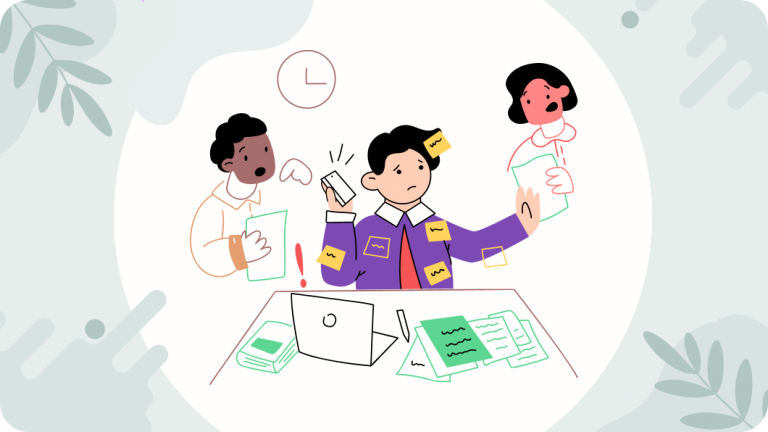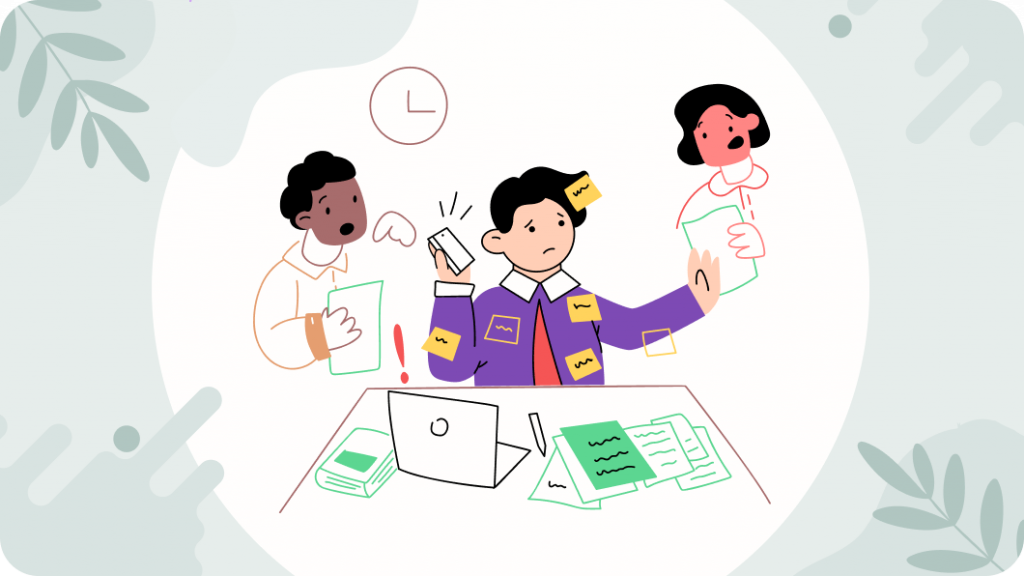How to get unstuck
Are you feeling stuck? You might have a good life, maybe even a life that looks great from the outside. But you feel exhausted and drained at the end of each day, and wonder how you can keep going. You feel overwhelmed by the demands from your boss, your colleagues, your family and friends, and others.
You dream of a change, of something different—but what? You come up with ideas, but they all sound impossibly unrealistic. You’re tired of feeling this way, but you don’t see how you can change your life without everything falling apart.
I want to tell you a secret: you can get unstuck, and start to build that dream one step at a time. The first step is to take responsibility for your life by making different choices.
Once you realize that you have the power to make a different choice, you will start to see even more choices to create new possibilities. And as you keep making new choices, you may find yourself creating a life that is unimaginable from where you are today.
This approach has worked for me, it has worked for the many successful leaders I have coached, and it will work for you—if you are willing to embrace the process and do the work of living a few key principles.
The only thing you control is your next action
You can’t change the past. It’s already happened, and nothing you do will change that. If you don’t like what happened, you can avoid responsibility by looking for somebody to blame, or make other excuses. You can spend hours beating yourself up and wishing you had done things differently. But to get different results, you must learn from what happened and take different actions going forward.
You can’t control the future. The world is too uncertain and complex for you to ensure that you get the future you want, no matter how carefully you plan. I had great plans for how 2020 would unfold for my coaching business, and the COVID-19 pandemic upended all of them. And now that I’m a parent of two young kids, I am learning to hold my plans even more lightly.
You can’t control others. You can try to influence and persuade them, but they choose their actions, not you. What they do is frequently a response to their own experiences, rather than having anything to do with you.
If you can’t change the past or the future, and you can’t control others, what’s left is the present moment and yourself. What you can control is choosing your next action with purpose. In other words…
You have a choice
With that control comes the responsibility to intentionally choose your actions. This includes the stories you tell yourself about the events that happen around you, which affects how you react to those events.
You can give that responsibility to others. Instead of choosing what you do, you can let your manager choose, or your parents, or your friends, or your community. These others may not even have to tell you what they want, as you may have internalized their expectations (or your assumptions about their expectations) as nagging voices in your head on constant repeat.
But giving that responsibility to others means you have given away the one thing you control, which is why you feel helpless and stuck. Every time something happens, you have a choice about how to respond: you can react the way you previously have, which will likely get the same results, or you can choose a new option that might lead to different possibilities. Your freedom comes from taking the responsibility to make that choice.
I’m not saying your choices will be easy. There can be difficult consequences, and your past choices may constrain you in real and unfortunate ways. If you stretch financially to buy a house that is beyond your means and the economy enters a downturn, that mortgage will constrain your actions; you might have to stay in a job you hate because it’s well paying and stable, or if you choose to leave, it might affect your ability to keep the house. There’s no easy choice in this situation, but that doesn’t mean you can’t leave your job—you just can’t leave your job and keep paying that mortgage.
Just because it’s not an easy choice doesn’t mean it is not a choice. I want you to realize that you have more possibilities and choices available to you than you even realize. You can choose how you spend your time in each moment and each day. You can choose how you show up in your interactions.
But we rarely make such choices consciously or intentionally. We discover what works well for us as a child or in school, and then we keep doing that, because…
Change means letting go
Once you learn a set of behaviors that bring you success, you usually keep doing them even if your situation changes. That makes sense! Why change something that’s working? That’s how our brains are designed to work; when we do something that brings success, those behaviors are reinforced in our neural wiring so that they become easier to do next time.
And yet these actions that previously brought success may be the exact set of behaviors that are now keeping you stuck. Navigating the next set of challenges requires letting go of what once worked for you and learning a new set of skills and actions.
The root cause of such limiting behaviors often lies in beliefs that you hold about yourself. One common limiting belief is that working harder is the answer. Children are rewarded for effort: you get credit for showing your work, and activities like sports and music teach you that more work leads to a proportional amount of success: if you practice more, you get better. So, you continue to apply that mental model in life because you believe that working harder will always lead to proportional results. Unfortunately, the world is often nonlinear and nonintuitive, so working harder on the wrong things is often ineffective and may even make things worse. Rather than being the answer, working harder can lead to burnout, because the harder you work, the further you get behind.
You might be holding on to similar beliefs that were effective for you when you first learned them, which makes them particularly difficult to let go of. You literally have to reprogram your brain’s wiring to change those beliefs. It goes beyond just saying you want to do something different; you have to take consistent actions to practice the new behavior to build new neural pathways, much like you would have to practice to change which hand you write with. But unless you let go of those old beliefs, you will remain stuck in your current situation; reaching the next level requires letting go of those beliefs, and learning new ones.
While we may want to blame others for our situation (our parents, our managers, the expectations of others), we still have a choice as to what actions we take. If we do not see those choices and/or choose not to make different choices, then we are responsible for the consequences. Our refusal to let go of our current beliefs is the reason our situation is not changing, which leads to this question:
How are you the problem?
This question is not meant to shame or blame you for everything that you dislike in your life. It is meant to remind you of the agency you have to create your life and to help you take responsibility for the choices you make.
When you feel stuck, look for the ways you might be contributing to that stuckness through your unwillingness to let go of your expectations of yourself or others, commitments you’ve previously made, or an identity that no longer serves you.
Once you recognize what beliefs or behaviors you are holding onto, you have a choice:
- You can keep doing what you’re doing and stay stuck, or
- You can change by letting go of your previous responses and start experimenting with different actions that might change the situation and get you unstuck.
Let’s apply these principles to a real example that many people face.
How are you stuck?
I can’t do what I want each day because I have to spend my days working at a frustrating job.
How are you the problem?
I have a lifestyle that requires a certain amount of income. To earn enough to keep that lifestyle, I spend most of my day on unsatisfying work.
You have a choice.
Each of those is a constraint I could potentially change—I could find a way to live on less money by reducing my financial commitments, or I could find a more satisfying job that allows me to spend more time on activities I find energizing. If no such jobs are available to me, what skills would I have to develop to get such a job?
These questions can be used to reflect on any situation where you feel stuck to discover how you might be contributing to the stuckness, and what different actions you can take to change the situation. I have found these questions to be profoundly powerful for myself and my executive coaching clients, and I hope that they will be powerful for you as well.
This post has been excerpted from Eric Nehrlich’s book, You Have A Choice: Beyond Hard Work to Meaningful Impact, available on Amazon.















